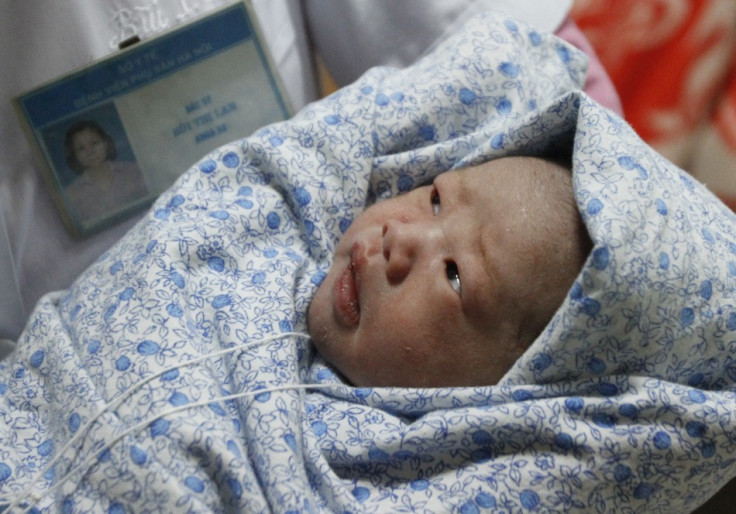Study Finds Babies Read Lip Movement; Autism Cases Can be Detected Early

Babies read lips of people surrounding them, a new study reveals.
Researchers at Florida Atlantic University have found that babies not only learn to talk by hearing sounds but they also read people's lips.
In the study published on January 16 in the Proceedings of the National Academy of Sciences, scientists noted that by the time babies are about six months old, they begin to intensely observe lips of people who talk to them.
"The baby, in order to imitate you, has to figure out how to shape their lips to make that particular sound they're hearing," the Associated Press quoted developmental psychologist and the lead researcher David Lewkowicz of Florida Atlantic University, as explaining.
So it is advisable that parents spend more time with the baby for speech development. The new findings can also be used to detect and treat autism spectrum disorders. Symptoms of this disorder are problems in communicating, repetitive behaviour or cognitive delays.
In the US alone, one out of 110 children suffer from autism; figures for the UK are not available.
The researchers studied the behaviour of a group of infants ageing between four months to one year.
The babies' eye movement and mouth were observed using an eye tracker device while they were watching videos.
It was found when the babies were four months old they focused mostly on the women's eyes in the video. By time they were six to eight months old, (the so-called "babbling" stage of language acquisition) their focus shifted to the women's mouths. In that period babies also develop cognitive understanding where they can guide their attention to those things which interest them.
Babies continue to read lips until they are about 10 months old; at that age babies reshift their attention to the eyes. When babies are ten months old they begin to grasp the basics of their native language.
As babies begin to speak and improve their ability to understand "shared meanings, beliefs and desires" babies go back to observing people's eyes, according to Prof Lewkowicz.
The findings of the study can help diagnose autism cases when a baby is six months old rather than at 18 months using the existing behvarioural tests. "The earlier we can diagnose it (autism), the more effectively can we ensure the best possible developmental outcomes," says Lewkowicz.
© Copyright IBTimes 2024. All rights reserved.








